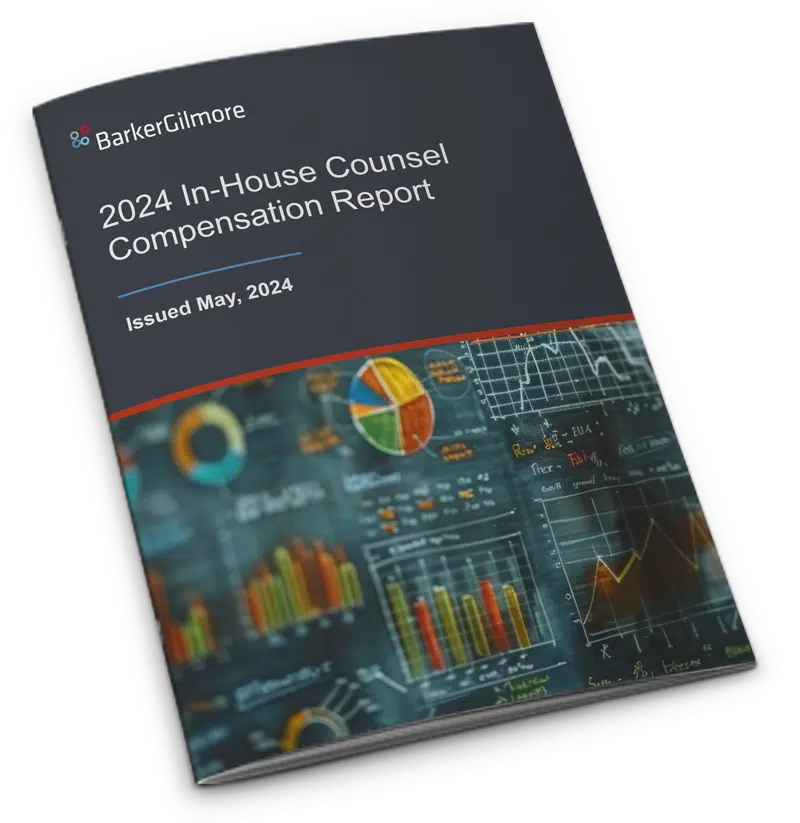As the new year begins, it’s time for General Counsel to take a close look at their law departments and each of the employees who contributes to them.
In today’s more fluid job market, it’s more important than ever to keep highly skilled legal talent engaged in your company by scheduling an honest conversation with them to review their performance. Performance evaluations give you a basis for setting incentives to help you retain legal counsel, such as pay increases and end-of-year bonuses. Evaluations also assist you in spotting inefficiencies in your law department and determining whether or not you need to recruit in-house counsel to manage the extra workload of someone who already has too much on his or her plate.
It’s crucial to develop a uniform, transparent system so every employee in your law department knows what’s expected and how he or she will be evaluated.
The areas you choose to measure and how you measure them will depend on your company, but there are some guidelines all companies should follow. Here are six quick tips for evaluating employee performance in your law department.
1. Limit The Number of Goals
If you’re evaluating employees based on a list of 30 criteria, you’re not really prioritizing anything. At the beginning of each year, take time to meet with your CEO and board of directors to determine the primary objectives for your company, and whether they’ve changed from the previous year. Consider the role of your law department in helping the company achieve those objectives, and set priorities accordingly. If one of your objectives is to grow business by 10 percent in three regions, for instance, you could focus on your staff’s ability to handle mergers and acquisitions thoroughly and efficiently.
Five tends to be a good, realistic number of goals.
2. Use an Objective Third Party
Consider using an objective third party to determine these metrics. This adds credibility, making employees more likely to buy into the process. Retail Properties of America used Aon Hewitt to conduct a compensation benchmarking study of all positions across its company. They assigned each role in the company to a “band” with a minimum, mid-range and maximum level. As employees went up within their specific band, their compensation rose to match it.
3. Give Employees a Chance to Evaluate Themselves First
Most employees are honest about what they’ve done well and where they’ve fallen short. Although you have the final say, they’ll appreciate this opportunity to reflect on their performance from the previous year. This can be a good time to have a candid conversation with them about their perceived strengths, weaknesses and challenges.
Your employees might bring other things to your attention, such as an increasing workload and a need to recruit in-house counsel to manage an emerging issue.
4. Evaluate Behaviors as Well as Accomplishments
Measuring the performance of lawyers isn’t necessarily as straightforward as tallying the number of deals a salesperson closed or how much revenue he or she brought into the company. One of your attorneys may spend many months on a single acquisition, while another resolves numerous cases in that same period of time.
Remember, the means are often just as important as the end goal.
Once you’ve established your goals, ask employees to assess to what extent they’ve achieved each goal in one column. In a second column, ask them to evaluate how they achieved it. Brown-Forman uses five key behaviors as a guideline to evaluate employees throughout its company. Those behaviors, known as the “five Cs,” take into account the employee’s curiosity, courage, collaboration, creativity and ability to be a champion in the way they approach each goal.
5. Don’t Skip Senior Staff
The more someone advances within an organization, the more insulated they can become from constructive feedback. Their direct reports may be reluctant to raise an issue with them, and the CEO may not have the time to give an honest evaluation. These leaders are the backbone of your organization and, if they’re not performing at a high level, the repercussions can be far-reaching.
Consider implementing an evaluation process that asks for confidential feedback from the direct reports of your senior staff members, such as your Deputy General Counsel or Chief Compliance Officer.
6. Revisit Metrics Every 3-5 Years
Just as your company’s objectives change over time, so should your employee performance evaluations. If you haven’t revisited your evaluation process in several years, consider whether the metrics you measure still support the overall goals set forth by your CEO and board. You can also work with a third party to examine your employee performance metrics and determine if they’re in line with similar companies within your industry.
As you take the time to evaluate your law department, you may identify gaps in skills or staffing. A team of experienced legal recruiters can help you hire corporate counsel to prepare your department for the coming year.
To learn how General Counsel at three top companies evaluate their employees and what other law department metrics they measure, download our free guide, “End of Year Evaluations: What Metrics Matter Most?”
Connect with a legal recruiting advisor
* indicates required fields







